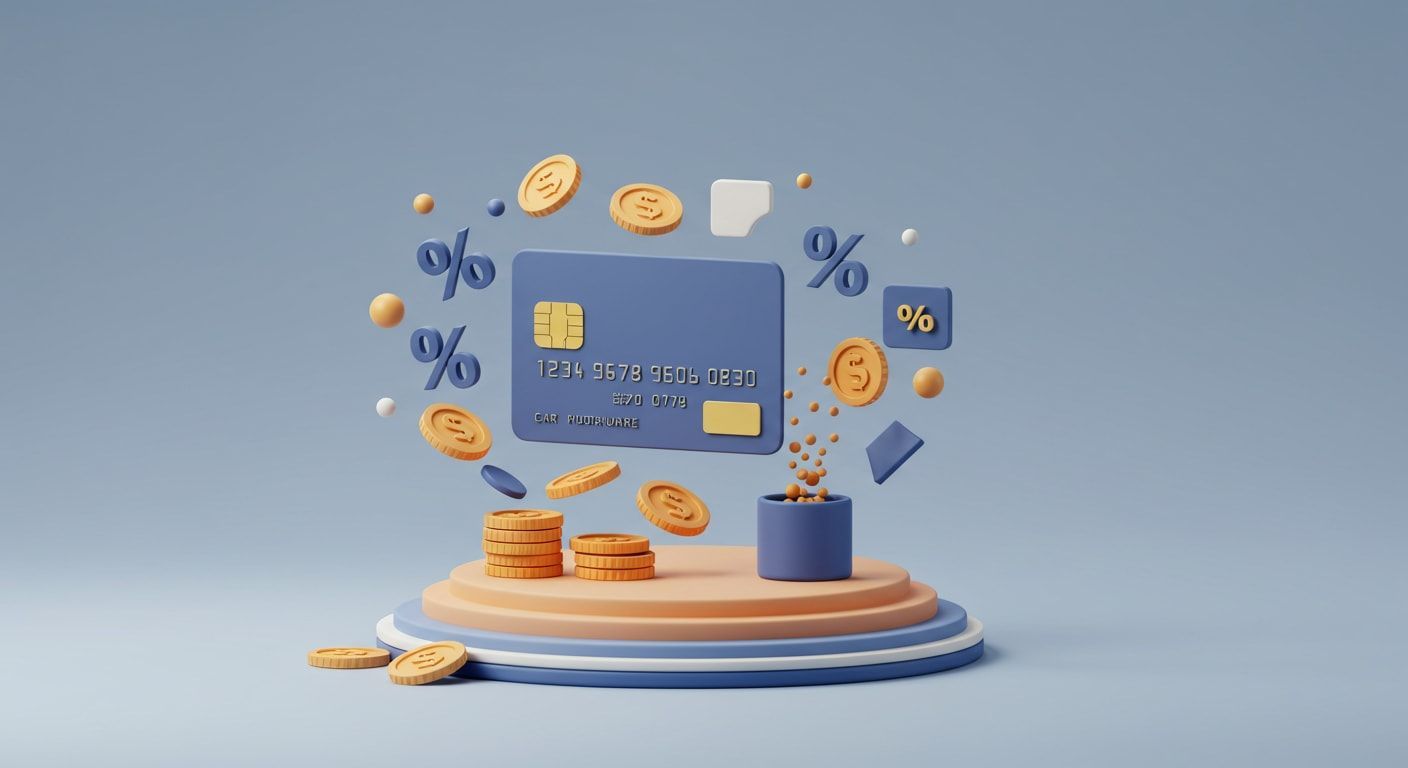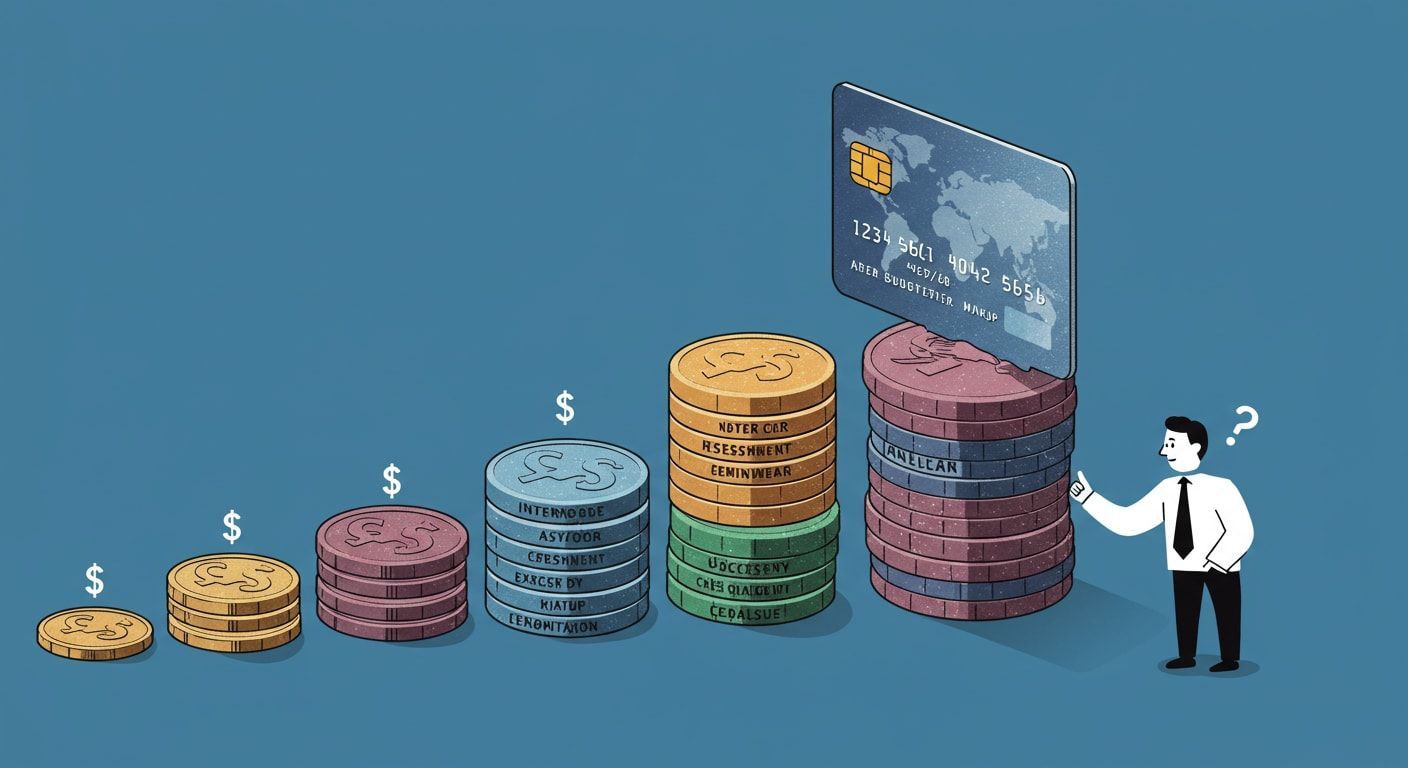What Is a Processing Fee and How to Reduce It? - Tips Inside!

As more countries gradually shift away from cash payments, a growing number of businesses are accepting credit card payments. While it's a convenient option for customers, it can adversely impact your bottom line, especially if your business processes millions of dollars in sales each month.
Why? Because every time a customer pays with a card, the merchant must pay a percentage of the transaction as a fee for using the payment infrastructure. The good news? There are smart strategies you can use to help reduce those payment processing fees.
Momentum Growth Partners is a consultancy firm that offers a wide range of services designed to help you save money and make more of it. From interchange fee analysis to negotiating merchant card processing fees, our team of skilled consultants is here to help grow both your top and bottom lines.
In this blog, we'll cover:
- What are credit card processing fees?
- How to calculate credit card processing fees
- How to offset credit card processing fees
- How to reduce credit card processing fees
What Is a Processing Fee?

Credit card payments are one of the most convenient online payment options you can offer your customers. From weekly grocery runs to major purchases like cars, they've become a staple of everyday life.
If your business has recently started accepting credit card payments or plans to do so, it's essential to understand the costs associated with this method of payment.
A processing fee is the amount charged by a credit card processor each time a merchant accepts a card payment. It's a cost businesses incur in exchange for secure and reliable payment processing through credit card networks.
The processing fees you pay can vary based on several factors, including:
- The type of credit or debit card used
- The method of transaction (swiped, inserted, tapped, or online transactions)
- Your transaction volume and average transaction size
- Your business type and industry
- Your processing history
- Your geographic location
- The pricing model used by your processor
What Are the Different Types of Credit Card Transaction Fees?

Typically, credit card processing fees are made up of three main cost components:
- Interchange fees: These make up the largest portion of processing costs. Interchange fees go directly to the bank that issued the credit card used in the transaction.
- Assessment fees: Whenever a credit card is used, the transaction is routed through a secure payment network. Businesses must pay assessment fees to the card networks that provide this infrastructure, such as Visa, Mastercard, and Discover.
- Payment processor fees: These are charged by the payment processing companies that handle the technical and logistical side of processing payments on behalf of your business. Examples include Square, Stax, and Helcim. This applies to both in-store and ACH payments if supported.
What Are the Types of Credit Card Processing Fee Structures?
Credit card processing companies may offer multiple fee structures, each with different implications for your payment processing costs and overall business operations. Here are the most common models:
Flat Fee
Under this fee structure, businesses pay a fixed percentage of the transaction amount plus an additional fixed fee for each transaction. While this is the most predictable and straightforward pricing model, it can be incredibly expensive.
Tiered Pricing
Similar to the flat fee model, tiered pricing charges a percentage plus a fixed fee per transaction. However, the rate varies based on the type of card accepted by the merchant.
Under this structure, qualified debit and credit cards typically incur the lowest fees, while corporate credit cards and non-qualified cards carry higher processing costs.
The tier pricing model also takes into consideration the method of transaction, whether the payment was made in person or via a payment gateway for online purchases.
Interchange-Plus Pricing
Preferred by many high-volume businesses, interchange-plus pricing is often the most cost-effective fee structure. It separates the fee paid to the credit card issuer (the interchange rate) from the payment processor's markup.
Merchants pay the actual interchange rate plus a transaction fee for the transaction process. This level of transparency helps business owners:
- Gain a better understanding of their costs
- Boost cash flow by minimizing unnecessary fees
Subscription-Based Pricing
Some payment processors offer a subscription model, charging merchants a monthly or annual fee plus a fixed per-transaction rate. This approach can be attractive for businesses with a steady sales volume, as it helps the business owner:
- Better predict payment processing costs
- Potentially reduce fees
How to Calculate Credit Card Processing Fees

Credit card processing costs can vary from one provider to another. According to 2025 data, the average fees charged by Visa, Mastercard, and American Express range from 1.79% to 3.01%, plus an additional eight to 25 cents per transaction.
While credit cards offer greater convenience than cash, they can also come with added costs. Understanding what your processor is charging can help you take the right steps to manage or even reduce those fees. So, how can you figure this out?
Calculating your credit card processing fee is fairly straightforward. Just divide the total amount deducted for processing by your total monthly sales. This will give you the effective rate.
Alternatively, you can use an online credit card processing fee calculator if you don't want to do the math. Some credit card processing fee calculators allow you to calculate the effective rate and even determine the total fees.
How to Offset Credit Card Processing Fees

While credit card processors charge only a small percentage per transaction, those fees can add up quickly. If your business processes over $1,000,000 in monthly transactions, you could be paying tens of thousands of dollars in processing fees.
To avoid these charges, you can pass the costs on to your customers. Here are a few ways to do that:
- Add a credit card surcharge: Charging customers an additional fee when they pay with a credit card is legal in most states. However, it's essential to check your local laws to ensure compliance. One key rule: you cannot apply this surcharge to debit card transactions.
- Minimize chargeback fees: Disputes that result in chargebacks can increase processing costs. Keeping these fees low by resolving issues quickly can help control expenses.
- Offer a cash discount program: Encourage customers to pay with cash by providing a small discount. This not only reduces processing fees but can also help improve your cash flow.
- Adjust your pricing: You can incorporate credit card processing costs into your product prices. This pricing approach spreads the fee across all customers rather than charging it directly.
While passing on credit card fees may seem like a smart way to protect your margins, it's crucial to weigh the pros and cons.
Pros
- Boost cash flow
- Reduce transaction costs
Cons
- Product prices become less competitive
- Make day-to-day operations more complex
Another thing to keep in mind is that many customers prefer the convenience of paying with a credit card. By limiting or discouraging card payments, you could be alienating a portion of your customer base.
How to Reduce Credit Card Processing Fees

Passing on the financial burden to the consumers can do your business more harm than good. That’s why we always recommend working with an experienced payment processing consultant. They can help you take the necessary steps to reduce credit card processing fees, including:
- Choosing the right pricing structure
- Researching and shopping around for better rates
- Negotiating with the payment processing company
- Reducing the risk of credit card fraud by using address verification services
- Eliminating the middleman by working directly with a processor
- Properly setting up your merchant account and terminal
- Negotiating a lower fee with the processor
Reduce Credit Card Processing Fees with Momentum Growth Partners!

Running a business with over $1,000,000 in monthly sales is a milestone worth celebrating. But if you're spending tens of thousands of dollars just to offer customers an alternative payment method, those costs can quickly eat into your profits.
At Momentum Growth Partners, we understand how high processing fees can impact your bottom line and your growth potential. Our experienced financial consultants specialize in identifying practical and effective ways to reduce processing fees. From analyzing your current fee structure to negotiating more favorable rates, we focus on helping you save money while maintaining a transparent and cost-effective payment process.
Call us at (517) 730-1751 to schedule a consultation with one of our expert financial consultants and take the next step toward accelerating your business growth!




